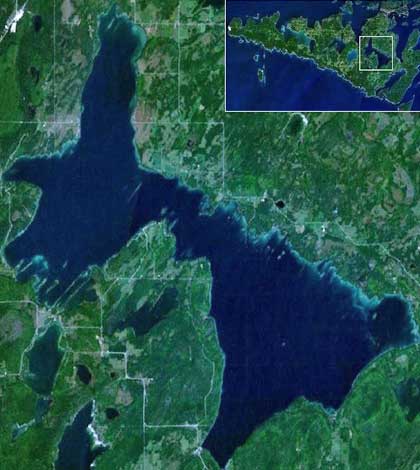Science as it applies to Lake Manitou not conclusive
To the Expositor:
Most of us had more to do over the holiday season than think about Rob Coulter’s rather tortured defence of his desire to freeze development on Lake Manitou.
His letter to the editor of December 18 (“A rebuttal”) concedes that there is disagreement on the issue among members of the cottagers association and among members on its executive. But it misses the important point that the executive failed to consult the membership. They haven’t even outlined the issue in their newsletter. Yet they and Mr. Coulter have presumed to speak for all of us.
Mr. Coulter’s whole position is that Manitou’s lake trout are endangered because the Ministry of Natural Resources says so.
He says the ministry was wrong some years ago when it said Lake Manitou could increase by tenfold the number of dwellings on the lake without undue pressure on the environment.
Not so, says Mr. Coulter, because he says that study was based upon what could be tolerated by lakes in the granite of the Precambrian Shield, unlike lakes in Manitoulin’s limestone. A remarkable argument.
The trouble with it is that MNR experts later gave Lake Manitou and its lake trout a glowing report card, in 2009. They cited the “innate productivity” of the lake trout in Lake Manitou, and said they grow more than twice as fast as in other lakes in the region.
An MNR biologist even said that such rapid growth was in fact owing to the limestone environment.
But Mr. Coulter relies upon a measure of dissolved oxygen chosen by the MNR as the “criterion to determine lakeshore development capacity all inland lake trout lakes on the Precambrian Shield.”
Even that measure is just an arbitrary policy position, highly debatable as a criterion for development. Under various Canadian and American water quality guidelines for trout lakes the dissolved oxygen in Lake Manitou is at or above desirable levels.
Unable or unwilling to justify its policy and try to establish it as law, the MNR began by imposing it by policy fiat where they could, for lakes contained by crown land in the Precambrian Shield. Now it wants to impose it on Lake Manitou—regardless of the limestone conducive to the trout’s good health.
And it wants to do it through a back door, by imbedding it in an Official Plan contrived by bureaucrats rather than lawmakers.
Implausibly, Mr. Coulter disagrees with the government science behind current regulation of septic systems. The gist of his tendentious argument is that they doom lakes to eventual pollution.
So does he argue that existing cottages should be torn down?
Oh no. Mr. Coulter doesn’t even call for upgrading outmoded septic systems deplorably serving old cottages. The Manitoulin Planning Board has wisely called for looking at that rather than a development freeze.
To sum up, the science as it applies to Lake Manitou is not nearly as conclusive as Mr. Coulter, who is himself not a scientist, would have us believe.
Nor has the MNR’s position been tested by a public environmental assessment review, much less consideration of socio-economic concerns in achieving a sound and balanced policy.
Mr. Coulter doesn’t interest himself with such considerations. In effect, he would wrap Lake Manitou in a provincial park with no compensation to landowners. He would grant cottagers continued seclusion and immediately drive up the market value of their vacation homes—at the expense of allowing taxable land development to help support needy communities.
Mr. Coulter may be sincere in a mistaken belief that the science is conclusive and should trump everything else.
But it would have been nice if he had disclosed his family’s personal interest as cottagers on the lake.
Perry Anglin, Lake Manitou




